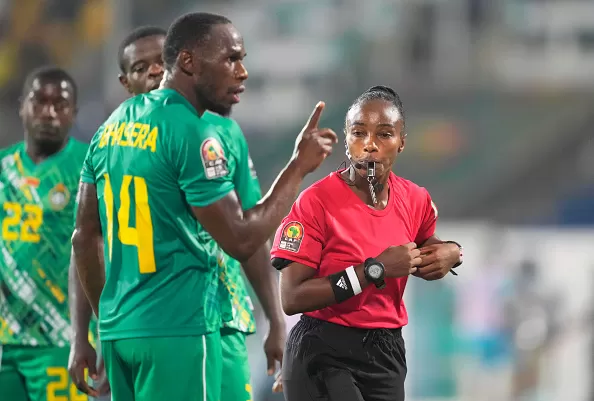Referee Salima Mukansanga made history at the African Cup of Nations for men this year and will do so again at the World Cup.
Rwandan referee Salima Mukansanga hopes that being selected as a referee in the 2022 World Cup will help open doors for other female referees who want to become match officials in Africa.
Earlier this year, she became the first woman to officiate a match at the African Cup of Nations among men, while last year she presided over the Olympic Games in Tokyo.
The 34-year-old hopes being one of the six starting women – along with fellow umpires Stephanie Frappart and Yoshimi Yamashita and three assistant umpires – at the international men’s tournament will open up opportunities for more women.
“It is an honor and an opportunity because it has never happened before,” Mukansanga told BBC Sport Africa.
“It means you will be the first and you will open doors for other women, especially women in Africa.
“You carry a lot on your shoulders and you need to carry it well, so that others can see that the door is open and they can also go through.
“It’s a joy and an opportunity that women have. It means the opportunities are there – and it’s up to us to take them and be productive from them.”
The referee of the world soccer federation Fifa since 2012, Mukansanga defied rejection early in life on his way to take his place on the main stage of sports in Africa in Cameroon.
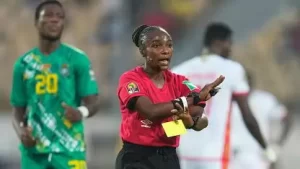
A short stint as a player led him to an advert for referee training, where – not for the first time – he took his place.
He contacted the Rwanda FA (Ferwafa) about joining the refereeing course right out of high school but was rejected, also because of his age.
So Mukansanga taught himself the basics of playing, the Laws of the Game, and finally he was given the chance to study with other referees who want to be referees with Ferwafa.
That tough start has taken him from being in charge of men’s league games in his native Rwanda, to the 2016 Women’s Cup of Nations, the 2019 Women’s World Cup and the delayed Tokyo Olympics.
He took charge of Team GB’s women’s matches against Chile and Australia in Japan, and the match between the Netherlands and China.
He then made history – at the center of Zimbabwe’s win over Guinea, where he played brilliantly, at the Men’s Cup of Nations in Cameroon on 18 January.
‘The history he made’
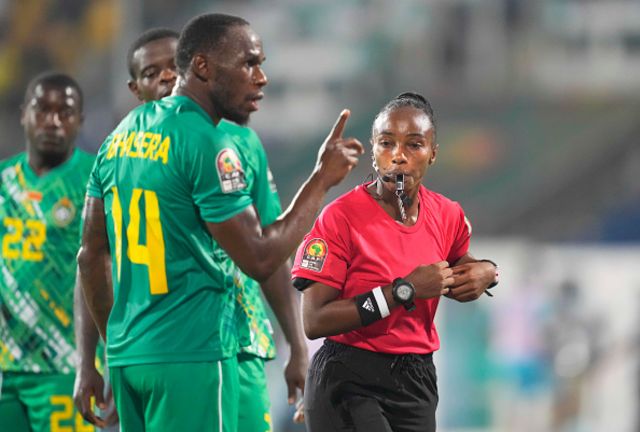
IMAGE SOURCE,GETTY IMAGES
Mukansanga showed six yellow cards in the African Cup of Nations match, among men in January.
After dealing with initial rejection and a cold reception in a male-dominated field, the Rwandan has embraced the challenges that come with the job.
“We have to work hard, especially in a male-dominated field. You need to redouble your work,” she explained.
“And then have love for the game, without that love you will get tired and then you will stop. But we don’t want to stop.
“We need to be one step ahead and if we work together, succeed and fight together.”
African Football Confederation (Caf) referees trainer Jerome Damon believes Mukansanga has achieved his success, after playing not only in the continent’s biggest stage but also in the African Women’s Champions League.
“It’s an absolutely amazing move – she’s in a unique position where she’s one of the few people who can go to both the men’s World Cup and the senior Women’s World Cup,” said Damon.
“It has not been done before, so it speaks volumes about referees and the development of referees in Africa.”
Damon, who has officiated at four Africa Cup of Nations finals, says the six women’s match officials appointed for the first time in men’s World Cup history earned their place in the finals – and that the focus remains on their work rather than gender. theirs.
“We have to understand that the inclusion of women in the tournament is not because they are women, it is because they are competent, high-class match officials,” he emphasized.
Helping women ‘bear fruit’
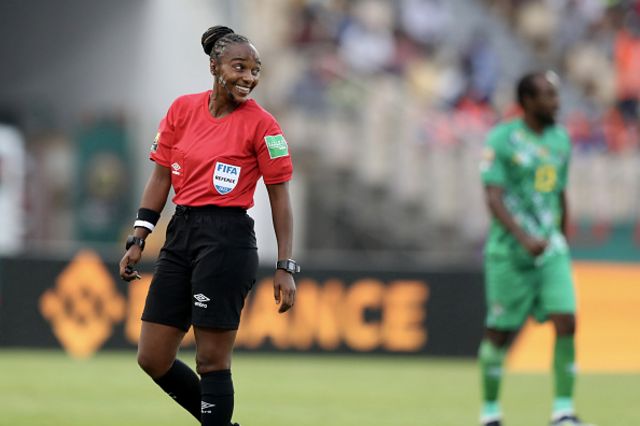
IMAGE SOURCE,GETTY IMAGES
Salima Mukansanga leading the 2021 African Cup of Nations
Mukansanga will be joined in Qatar by France’s Frappart and Japan’s Yamashita, as well as assistant referees Neuza Back from Brazil, Karen Diaz Medina from Mexico and Kathryn Nesbitt from the United States.
“We help each other because we come from different federations but we are going to work together for the success of women,” Mukansanga said.
“If a woman helps another woman, you will definitely see results.
“There are obstacles, obstacles and challenges. We will face these. There is nothing we can do about them other than we fight with strong ideas, commitment and full participation – and then we will win.”
Mukansanga, who also managed the football game at the highest point in the world on Mount Kilimanjaro in Tanzania five years ago, knows there will be additional scrutiny in Qatar due to the world’s attention focusing on the biggest football championship.
“People will always be unhappy with you, especially the losing team. So it’s up to you to do what you have to do – stay in line, don’t go outside the interpretation of the Laws of the Game, follow what the game requires.
“And then, at the end of the day, people will say, ‘Yeah, he was right’.”
Share this news
This Year’s Most Read News Stories
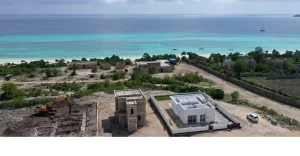
Tanzania readying to talk to British developer over Zanzibar land lease revocation
Dar es Salaam. British firm Pennyroyal Limited has said it will sue the Tanzanian government over leasehold revocation in Zanzibar, but the Attorney General has confirmed that they are preparing to meet with the investor.Continue Reading

Zanzibar liquor importers face fresh hurdle despite court order
The liquor shortage in Zanzibar is far from over, even after a court order granted relief to the three importers.Continue Reading

East African Community Bloc Dismisses Fake Common Currency
The secretariat of the East African Community (EAC) regional bloc has dismissed a post on X, formerly Twitter, which claimed that the bloc’s member countries have launched a common regional currency.Continue Reading

